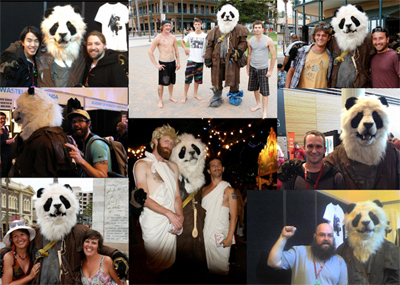by Kirsty Stark (Producer), Ella Macintyre (PMD) and Victoria Cocks (Writer/Director)
Part 4. Production: Keeping our Audience Engaged
Once we had our project funded, we needed to find a way to keep our audience engaged over the year it took to write, produce and release our three Wastelander Panda films.
When we released our Prologue, it was nothing more than a three-minute film, so all of the traffic we gained was directed back to our production company, Epic Films, via our website and Facebook page. This was far from ideal, especially considering that the company’s two other short films, L’Artiste! and Landscape Scene, were very different in tone and subject matter. We needed to separate our Wastelander Panda branding in order to give it the best possible chance of succeeding online long-term, so our first step after funding the project was to create a new Wastelander Panda website (at this stage a WordPress blog), Facebook page and Twitter account.

It turned out to be much more difficult than anticipated to migrate all of our fans over to the new pages. This taught us a great lesson



